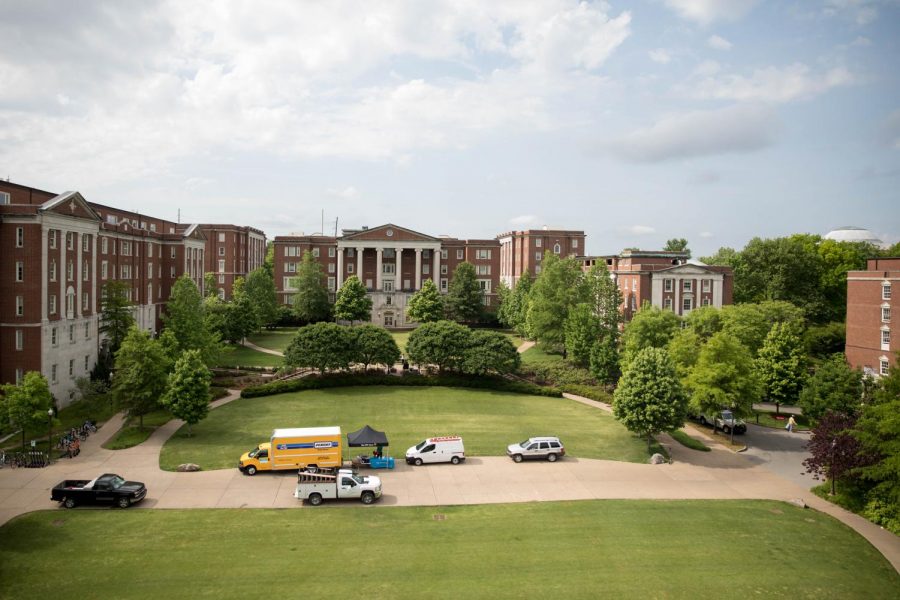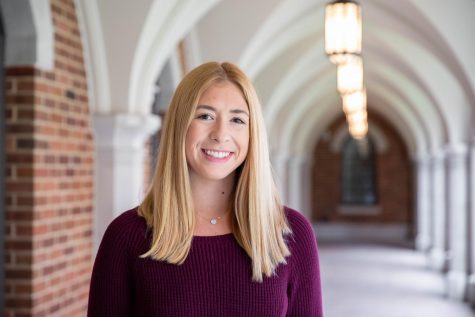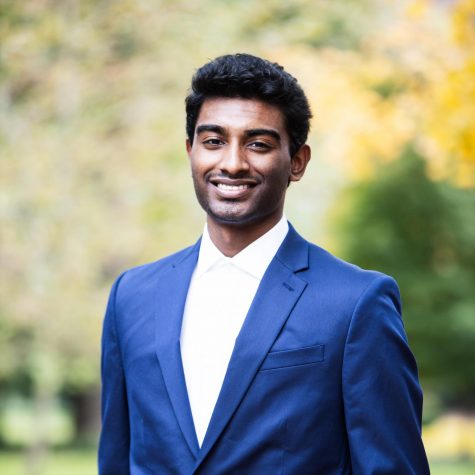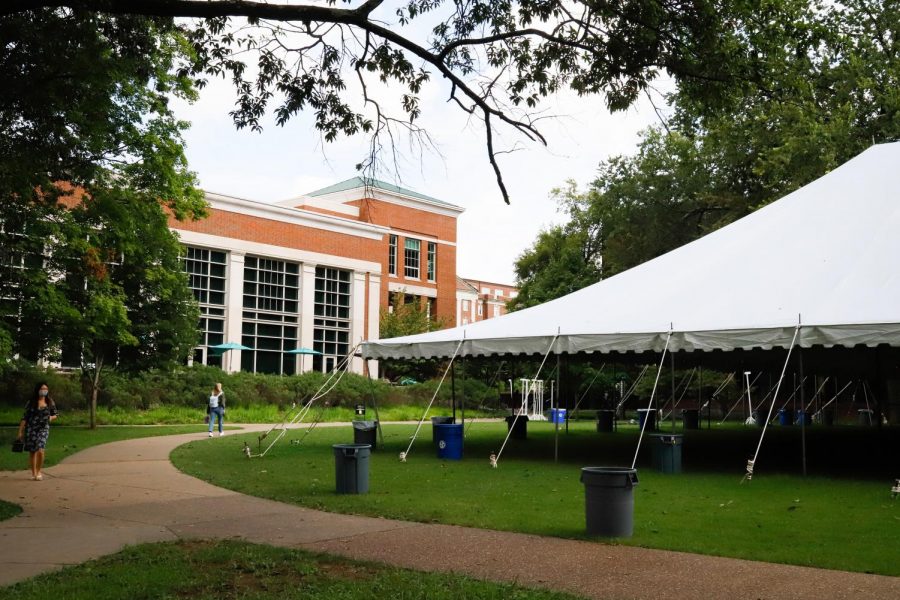As students return to campus from spring break before classes resume March 9, members of the Vanderbilt community reported varying levels of concern about students returning from other countries during the global coronavirus outbreak.
Over spring break, the number of global coronavirus cases rose from 83,000 Feb. 28 to 105,000 March 8, with 117 U.S. cases identified Saturday alone. Dean of Arts and Science John Geer sent out an email Friday night stating that classes would resume as normal on Monday.
“Vanderbilt requires that students, faculty, staff, postdocs and visitors who have traveled to a CDC Level 3 country (currently China, Italy, Iran and South Korea) and/or have come into contact with someone infected with COVID-19 register with the university using the links on the coronavirus website and self-isolate for 14 days,” Interim Chancellor Susan Wente said in an email Thursday evening.
Some think that Vanderbilt is acting appropriately by resuming classes, while others worry about students returning from places with coronavirus outbreaks that don’t have CDC Level 3 designation. A March 7 email to faculty reiterated that students are not excused from missing class unless they are undergoing mandatory self-isolation or have a written accommodation authorization from Student Access Services.
“I guess the big concern is with spring break, people have been going all around the world, including in Washington and Los Angeles. I have friends who went to Spain, I was in Ecuador. And there are cases in all those parts of the world,” sophomore Netra Rastogi said. “And considering that break ends tomorrow, there’s not enough time for anyone to show symptoms to isolate themselves. We’re not going to know about it until it’s too late. And then we’re going to go to class. I mean, on a college campus, things spread like wildfire.”
Rastogi doesn’t think that Vanderbilt needs to go to all-online classes at this time, like Stanford University and University of Washington have, because there aren’t many cases in Nashville. Davidson County has one reported case as of March 8. The evening of March 8, Columbia University made the decision to suspend classes Monday and Tuesday following one of its students testing positive for COVID-19.
“I think there are a lot of precautions Vanderbilt could take that they’re not doing,” Rastogi said. “I do think cancelling classes for even one or two days can be really helpful to allow people coming back from break the time to notice any symptoms and isolate themselves before it really does have the chance to spread.”
Even though Vanderbilt hasn’t cancelled classes, some parts of campus have taken steps to prevent the spread of germs. Faculty head of EBI Residential College Sarah Igo sent out an email to residents March 8 stating “We’ve been advised not to hold our regular college gatherings this coming week, so as to minimize the spread of germs” and instructing students to wash their hands regularly.
A Politics of Health conference scheduled for March 21-23 was postponed to limit the spread of COVID-19, per a March 5 email from the co-directors of the conference, which includes Director of Medicine, Health and Society Jonathan Metzl.
Senior Kate Weaver travelled to Japan for spring break, which is currently at CDC Level 2 with more than 1,100 cases of COVID-19. Per Vanderbilt policy, Weaver doesn’t have to report her travel to Vanderbilt or self-isolate, but she chose to drive to her home to Louisville to avoid potentially infecting others.
She made this decision in part because her roommate is an education major who has a lot of contact with members of the Nashville community, she said. Although self-isolating was possible for her because she only has two classes a week, she expressed worry about students returning to campus from countries with active coronavirus cases that have less flexible schedules.
“If someone was in my situation and they weren’t able to self-quarantine, that presents a risky situation for the university at large and for the general Nashville community, especially for majors where you’re required to go out to the community,” Weaver said.
One student that visited Germany over spring break, which now has more than 1,100 cases of coronavirus, says they’re worried that they contracted COVID-19 but don’t know it yet. The student, who spoke on the condition of anonymity for fear of social retribution for spreading COVID-19 unknowingly, is most concerned they’re going to give the virus to someone else on campus.
“I’m honestly the most worried about the potential to pass it on at school because the university neither cancelled classes nor increased the number of countries that required self-quarantine,” the student said. “Most likely someone contracted it and will end up spreading it on Vanderbilt’s campus, making the cancellation of classes necessary when that could’ve been avoided through earlier action.”
The incubation period for COVID-19, or the time between exposure to the virus and exhibiting symptoms, is estimated by the CDC to be between two and 14 days. The student isn’t self-quarantining because they aren’t required to and they didn’t want to miss classes and get in trouble, they said.
Students who have “any reason to believe” they have been exposed to COVID-19 are encouraged to fill out Vanderbilt’s self-reporting survey, but only students who have travelled to a CDC Level 3 country (China, Iran, South Korea or Italy) or have come into contact with someone with COVID-19 are required to fill out the survey and self-quarantine for 14 days, per emails from Interim Chancellor Wente and A&S Dean John Geer.
Junior Daniel Gulotta said he was one of about 50 Vanderbilt students sent home from a study abroad program in Florence, Italy which was cancelled Feb. 28. Gulotta flew back to the United States on Thursday March 5 and is now in self-isolation at home in New York, he said.
Although he was initially frustrated to have his program cancelled, he thinks Vanderbilt is doing everything right.
“At this time I don’t think there should be a concern that have students that have just travelled in general, like everyone travelled someplace over spring break. It’s in the United States, it’s abroad, it’s everywhere,” Gulotta said. “It’s tough to draw the line, and I think [Vanderbilt] is just drawing the line based on CDC guidelines, that’s all they can do. That’s all anyone can do at this point.”
Gulotta said that a lot of college students from many different abroad programs and schools, including Vanderbilt students on spring break, were in Barcelona, Spain, this past weekend for a music festival called Abroadfest, though he didn’t go. He thinks that people travelling to countries that aren’t CDC Level 3 countries aren’t really at risk but would be surprised if Vanderbilt doesn’t cancel more of its study abroad programs.
Vanderbilt has declined to comment on its plan for the remaining study abroad programs, as well as if the university is developing a plan to limit contact between the study body and Vanderbilt Medical Center employees and patients. Students from Vanderbilt’s Florence program are completing classes online and have not heard back from Vanderbilt on whether they’ll be allowed to return to campus after they complete their 14 days of isolation at home.
“Just with the unique context of people being all over the world right now for a break and coming back in one fell swoop as it started increasing elsewhere, I do think we will be at higher risk next week with everyone back than we would be in our home,” said senior Jamie Jacobson, who preemptively scheduled a flight home March 13 in case classes get cancelled. “The odds of us getting ridiculously sick from it are not that high, but there are people on our campus who are immunocompromised.”
The father of a Vanderbilt sophomore with an autoimmune condition said he’s a little uneasy about his daughter’s return to campus and would welcome online classes. He spoke on the condition of anonymity to discuss his daughter’s sensitive health condition.
“The math is in all of our favors, but we all have to be proactive,” he said. “I would hope that all people, including the university, would err on the side of being safe.”
A petition was started March 8 by Vanderbilt student Yihan Li requesting the university to cancel classes and hold online classes for the upcoming weeks; it currently has 1,188 signatures.
The Hustler will be posting live updates on our coronavirus updates page, and Vanderbilt will be posting updates to its coronavirus website.
This article has been updated to include information about the petition circulating campus as well as comments from an anonymous student who visited Germany over spring break. Last updated: 10:35 a.m. on March 9.















